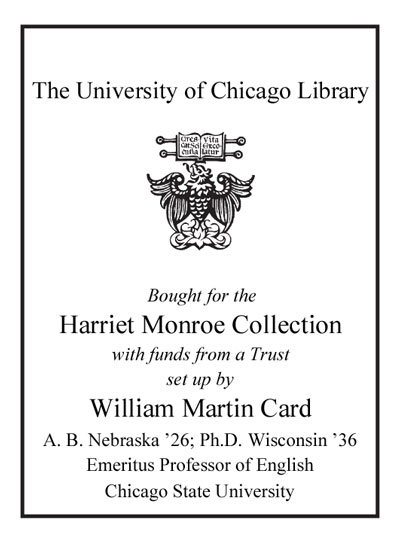Review by Booklist Review
One of the world's finest concert pianists is also a delightful, humorous poet. His little, mostly short-lined, free-verse rambles reflect his middle-European origins (Brendel is Austrian, though long resident in London) by being weirdly fantastic, in the manner of Hoffmann, Gogol, and Capek. A pianist is bedeviled in concert by a roving third index finger. Skeptics arriving in heaven admit "a tinge of regret" at all the deaf hearing, lame running, etc., while they, as always, "stay powerless." The bearded and the beardless have a war, the former force-pasting hair on the latter and the latter attack-shaving the former. Not Salieri but Beethoven disguised as Salieri kills Mozart in order to steal the key of C minor. Those situations are actually more bizarre than the descriptions indicate, and the other poems, even when less dramatic, are as strange and wonderful. Many contain musical references--they are a musician's poems, after all--but amuse even if one doesn't get all of them. Bravo, Herr Brendel! Encore! (Reviewed March 15, 1999)0375502939Ray Olson
From Booklist, Copyright (c) American Library Association. Used with permission.
Review by Library Journal Review
Music lovers will be familiar with Brendel as a world-renowned pianist and recording artist. They may also be familiar with his essays and lectures on musical subjects, in which he has been known to ask, "Must Classical Music Be Entirely Serious?" and in which he lists "laughing" as his favorite occupation. He singles out the cartoons of Charles Addams, Edward Gorey, and Gary Larson as favorite minor muses, and so it is not surprising that this most recent foray into poetry is a winsome mlange of unfettered whimsy and gnomic wit. Perhaps the flavor of this slender volume is best captured by a poem in which a Dadaist looks in the mirror to see "some fetching contradictions/ himself and his opposite," "tomfoolery and method," "sense within nonsense," "anarchy and poise," "Beethoven mustachioed, [and]...even little Jesus...with his tongue stuck out of course." One other stylistic contradiction perhaps should be mentioned: the sheer readable fun of these verses packaging powerful, if enigmatic, truths. Recommended for all public libraries.ÄThomas F. Merrill, Univ. of Delaware, Newark (c) Copyright 2010. Library Journals LLC, a wholly owned subsidiary of Media Source, Inc. No redistribution permitted.
(c) Copyright Library Journals LLC, a wholly owned subsidiary of Media Source, Inc. No redistribution permitted.
Review by Kirkus Book Review
Celebrity poetry'whether by a fetching folksinger (Jewel), a sincere ex-president (Jimmy Carter), or, in this case, a world- class concert pianist'is always ruled by one fact: it wouldn't be printed were it not for its author's extra-literary fame. This Austrian-born musician, who's written two volumes of essays on music, contributes nothing of permanence to the literary canon, but that seems beside the point. His fans will no doubt enjoy these short jottings'poems by virtue of their loose syntax, short- line phrasings, and lack of punctuation. A moralist and fabulist, Brendel displays his good taste and breeding everywhere in these sometimes absurdist little narratives. The title derives from a line in 'Finger,' about a pianist with an extra index finger, a poem that embodies many of Brendel's recurring themes: performance anxiety, the burdens of fame, and annoying audiences. Many poems concern the stage'actors who have to simulate lovemaking every night; what happens when Godot finally arrives; and another actor preparing to play 'Othello.' The great composers dot these pages, often in fantastical short sketches: their ghosts visit an old woman at night; Brahms fidgets impolitely and stinks of cigars; and Beethoven conspires murderously against Mozart. Brendel's skepticism reveals itself in politically tinged poems about leaders who stop laughing; self-important opinion-makers; and empty heroism. But the poet reserves his strongest rebuke for unruly audiences'the coughers, sneezers, and clappers among us. Celebrity verse for high-brow concertgoers, who will be properly amused.
Copyright (c) Kirkus Reviews, used with permission.
Review by Booklist Review
Review by Library Journal Review
Review by Kirkus Book Review

